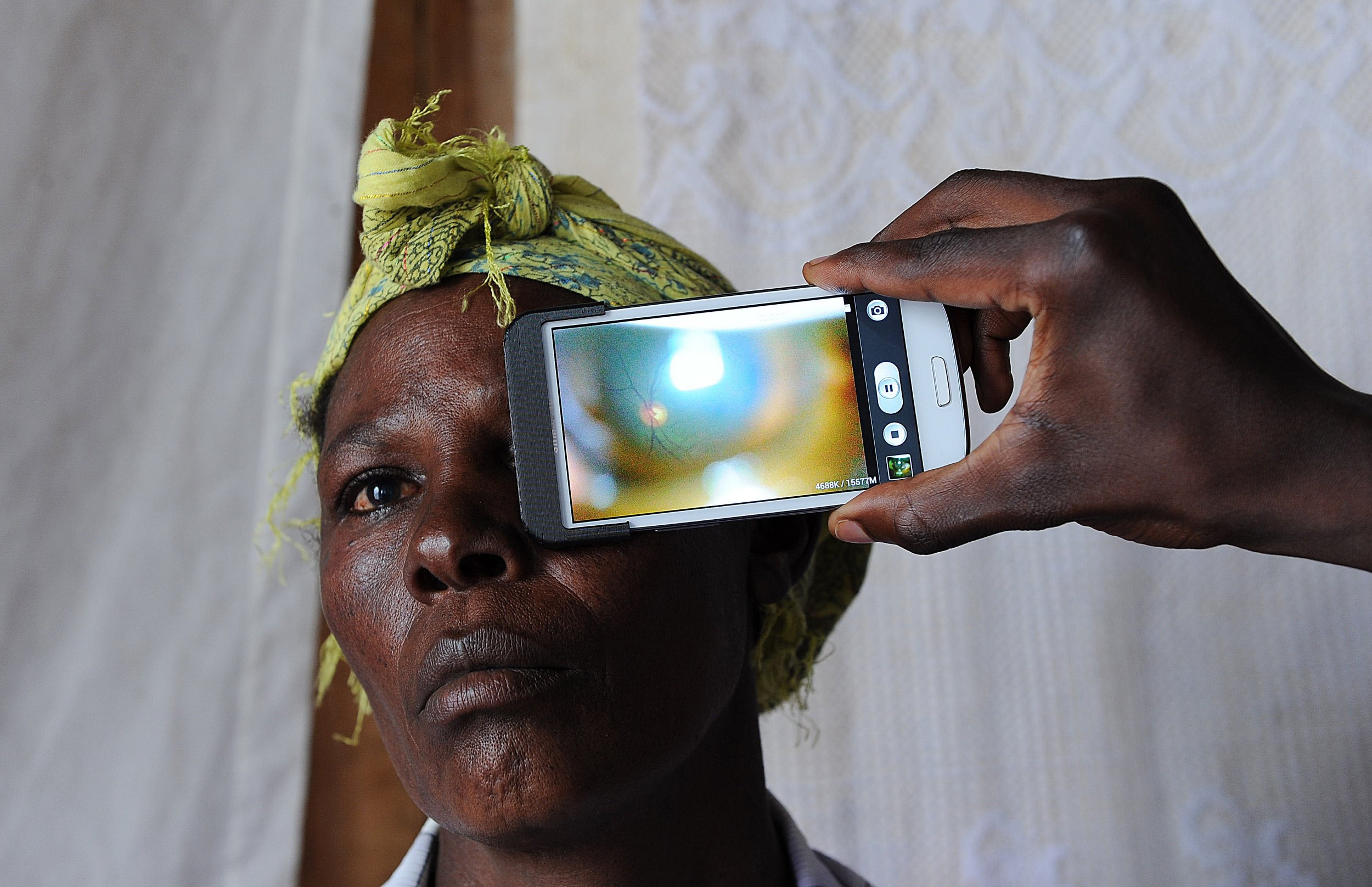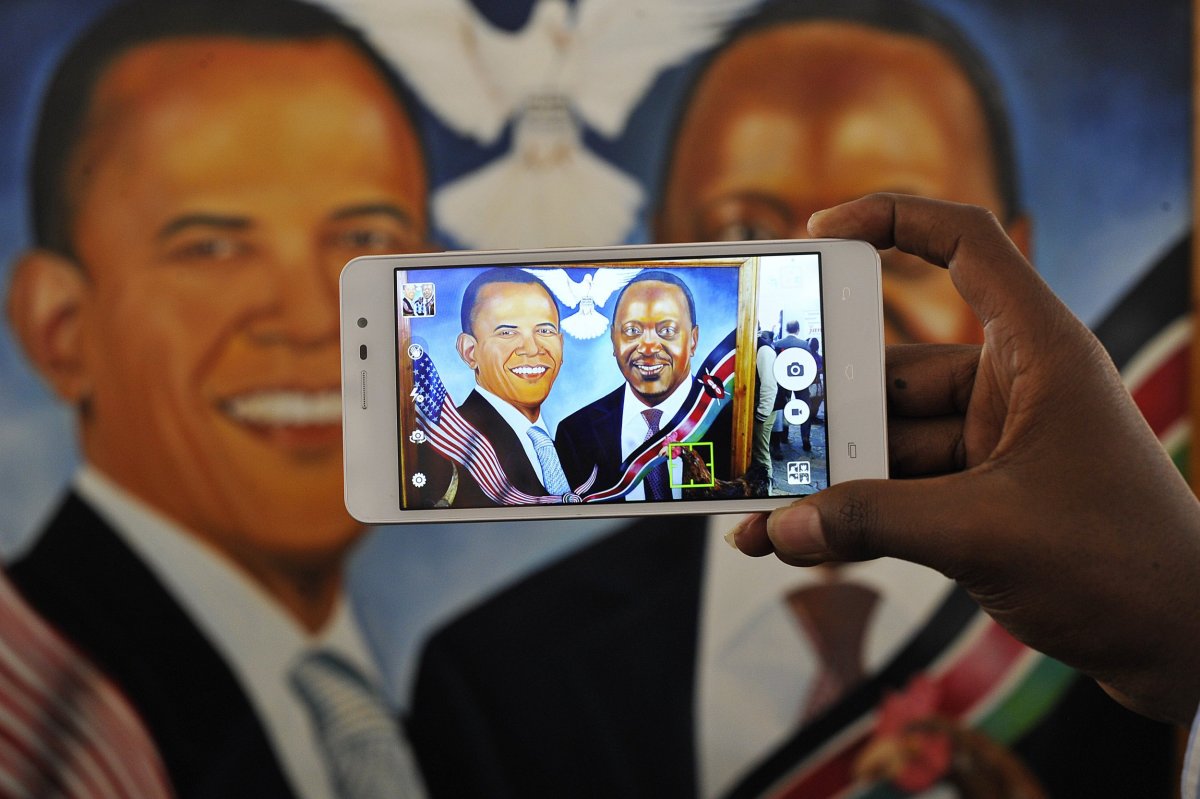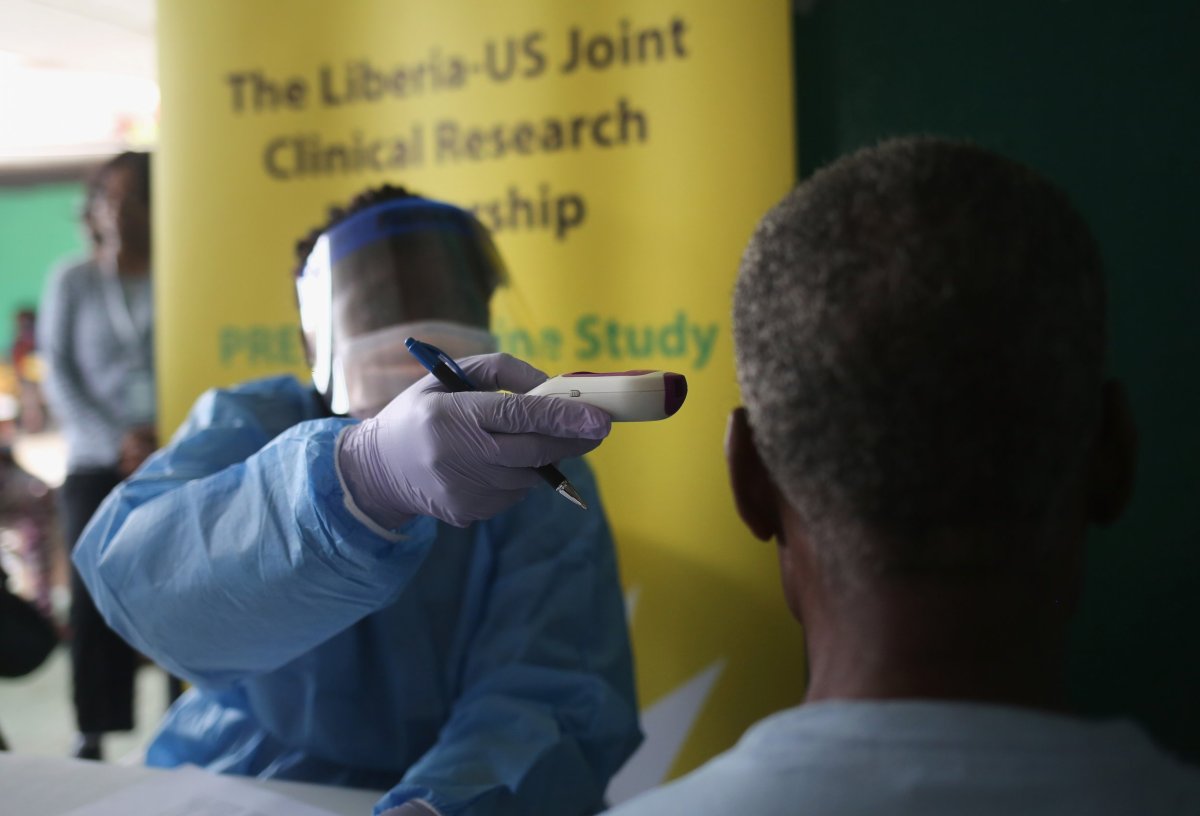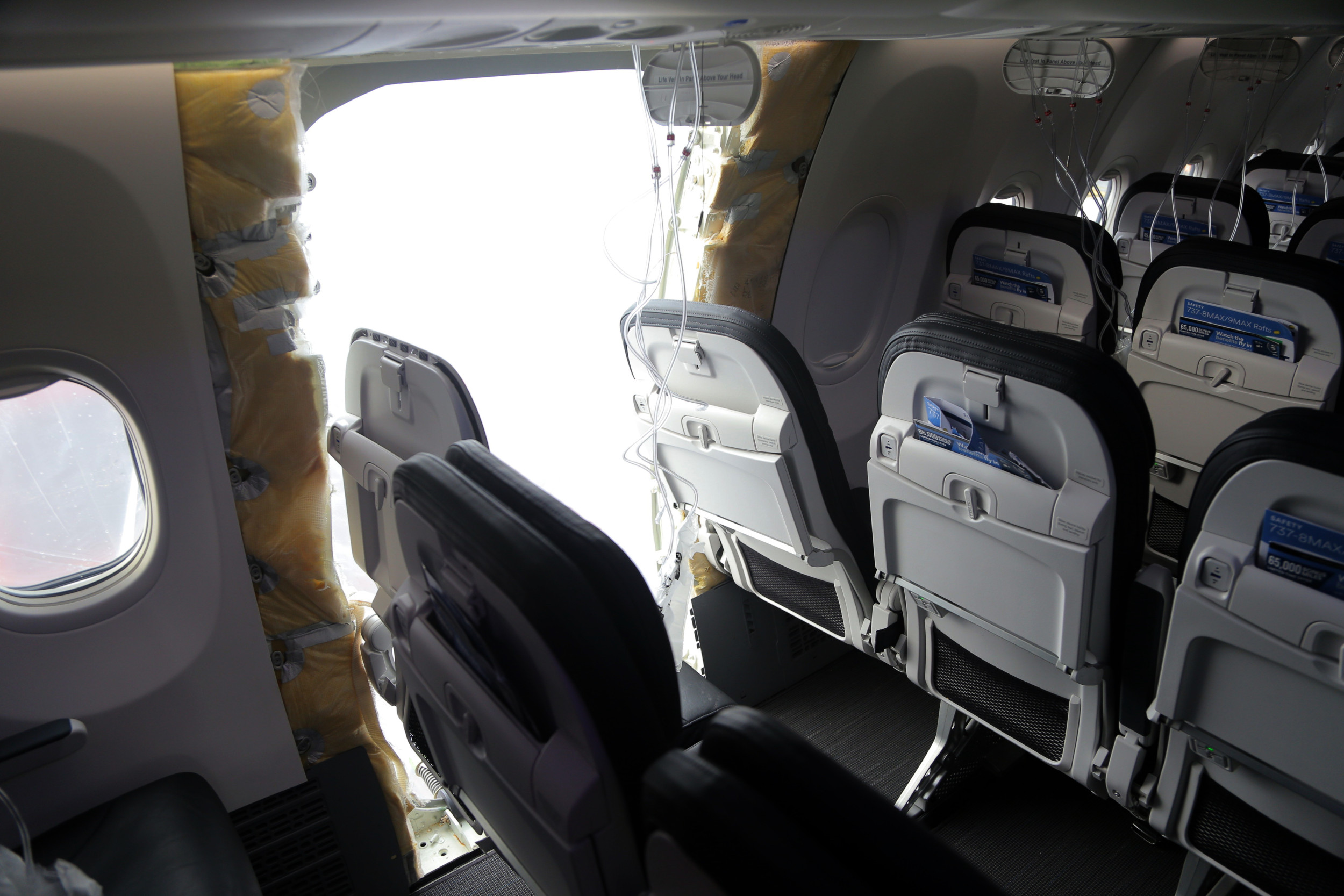
While American politicians quarrel over the Affordable Care Act, the United States—one of the few industrialized countries without universal health care—still spends twice as much per person per year on health expenses as the U.K. and Canada.
For all the debates over Obamacare, however, America boasts 38 MRI machines per one million people: Nigeria, a country of 180 million people, has only four. Across Africa, the ratio of doctors to patients is painfully low. The continent accounts for 25 percent of global disease cases, but has only 2-3 percent of the doctors in the world.
With 80 percent of doctors in countries like Nigeria seeking work abroad and limited access to clinics in remote and rural areas, the service gap across sub-Saharan Africa is wide. Almost one in two Africans lack access to modern health services—a figure expected to rise as the region's population doubles by 2050.
Africa is a continent in need of universal health care. Efforts to increase coverage are underway: From Rwanda to South Africa, telemedicine and artificial intelligence have enabled health tech platforms to emerge, and allowed doctors to treat patients in under-resourced areas remotely, efficiently, and cheaply via mobile devices. Given increasing mobile penetration, low digitization costs, and few policy barriers, African markets are poised to use AI to leapfrog traditional health care infrastructure and achieve economically viable universal health coverage.
Despite a population of 1.2 billion spread across 54 countries, Africa is getting more and more interconnected. With prices falling to as little as $100, smartphone penetration more than doubled between 2014 and 2016. By 2020, smartphone adoption on the continent is expected to pass 50 percent—just shy of the global average.

With the technology in so many hands, health tech companies have won half the battle. In Uganda, for example, tens of thousands of government health workers use MTRAC—an SMS-based technology connecting hospitals to the national drug chain—to report on local medicine stocks using their mobile phones. LifeBank uses digital supply chain technology to deliver blood when and where it is needed in Lagos, Nigeria's biggest city with a population of over 20 million.
These tools are helping countries across sub-Saharan Africa circumvent the World Health Organization's standard of one doctor per 5,000 citizens. Digital solutions make it easier to roll out new approaches to health care rapidly and at scale. Private companies and health care providers are seeing the business potential in health as disease patterns change and incomes rise. Pharmaceutical manufacturer Novartis partnered with Vodacom South Africa to connect community health workers to doctors through mobile technology. In Nigeria, General Electric has distributed cheap flip phone ultrasound scanners to diagnose more pregnant women.
Opportunity is boundless in Africa as mobile-fueled tech adoption flourishes. Mobile and digital is set do for health care what it has helped achieve for finance in Africa—overcome a lack of physical infrastructure.
Read more: Why the tech scene is thriving in Silicon Lagoon, West Africa's tech hub
Digitizing health records is essential to analyzing mass public health information. In 2014, the inability to capture and share data prolonged the Ebola outbreak in West Africa—but new platforms are emerging to address this. AMPIS in Nigeria, for example, turns hard copies of medical data into electronic health records for improved communication among stakeholders.
Digitized patient health records have been piloted in Ghana, Tanzania, Zambia, and elsewhere. Leveraging machine learning will help health care providers make more informed decisions about treatment and even prevent disease through data mining. Companies such as Ubenwa in Nigeria use machine learning to diagnose birth asphyxia by analyzing a baby's cry.

The applications for technologies such as blockchain and encryption are manifold in mobile health in terms of owning, securing, and sharing patient histories through smartphones. Moreover, because labor costs across the region are low and the process requires limited training, digitization of medical records presents an inexpensive way to enable machine learning and deliver fast, life-saving diagnoses.
But despite the integral role data science must play in achieving the U.N.'s Sustainable Development Goals, there is a dearth of data scientists and AI experts on the continent. Organizations such as the Pulse Lab Kampala in Uganda's capital are addressing underinvestment in data science by training the next generation of analysts through annual workshops. If more private sector firms and universities take the lead in education on data science, African health tech can overcome this human capital shortfall to achieve better, faster diagnoses.
The current lack of health care policy on the continent is a boon to the health tech industry. With fewer barriers around patient data privacy, government interference in many African health care markets is lower than in other regions. Instead of acting as a roadblock, governments keen to garner public support are more likely to act as partners. To turn the policy deficit into a developmental opportunity, health tech companies must educate government champions as well as users of the public health care system.
The success of digital health solutions in Africa is contingent upon better engagement of the public sector. Health tech companies should build partnerships across the public sector and leverage the facilities and existing health care infrastructure where possible. As long as the regulatory environment across the continent remains welcoming to the technologies that can bring sweeping improvements to citizen health, the case for AI as a service delivery solution is strong.
AI and machine learning are the keys to addressing health care inadequacies in African countries. These technologies help predict and control disease, expand and augment service delivery, and address several lingering social inequities. Ubiquitous health tech is by no means an inevitability: Successful rollout will entail an immense amount of concerted effort, capital, labor, and partnership.
The infighting over health care in the United States only makes Africa's strides more impressive. Markets constrained by finance and infrastructure are innovating to democratize health care for all.
Adebayo Alonge is a Nigerian entrepreneur and the co-founder of RxAll, an AI platform for pharmaceutical authentication and deliveries.
Uncommon Knowledge
Newsweek is committed to challenging conventional wisdom and finding connections in the search for common ground.
Newsweek is committed to challenging conventional wisdom and finding connections in the search for common ground.
About the writer
To read how Newsweek uses AI as a newsroom tool, Click here.








